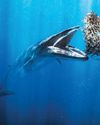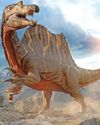CATEGORIES
فئات

Are cats smarter than dogs?
They're the UK's top pets, but which is more intelligent? You decide!

Could people turn Mars into another Earth?
Sven Bilén explores how humans might make a home on another world.

FUNNY BY NATURE
Claire Karwowski tracks down the wackiest wildlife that's cracking up the animal kingdom.

WEIRD SCIENCE
A round-up of the strangest science stories from around the world.

Guardians of the forest
Meet the incredible people protecting the Amazon rainforest.

The Mariana Trench
Dive in to find out how far down the ocean goes and what it's really like at the bottom.

Megan McCubbin
Meet the zoologist trying to change people's views of animals with a bad rep.

MAX POWER
From the second you wake up in the morning, your way of life is made possible thanks to the amazing power of electricity.

Your heart has a "brain"
New research by scientists at Sweden, and Columbia University, in the US, suggests that your heart could have its own \"mini brain\".

Ethiopian wolves could be furry pollinators
Sweet-toothed Ethiopian wolves have been seen lapping up nectar have been seen happing up nectar from red hot poker flowers.

That's amazing! The best discoveries, inventions and surprises
Asteroid telescope's final images revealed

Camera Obscura
Imagine stepping inside a dark room, where the only source of light comes through one small hole in the wall.

MANCHESTER SCIENCE FESTIVAL
From 18-27 October, shoppers at the Arndale shopping centre in Manchester, England, will face a giant spider.

Should musicians stop touring?
Multiple concerts travelling around the world have a big impact on the environment.

Are ghosts real?
Plenty of people believe in ghosts, but it's hard to find proof.

SMASH STEREOTYPES
In an extract from his prize-winning book, scientist and writer Adam Rutherford shows you how to use the power of science to fight racism. This chapter, titled Myth-Busting, is all about sport.

Animal awareness
What would it feel like to be another animal?

Hamza Yassin
Go behind the camera with a wildlife filmmaker.

WILDLIFE WATCH
Ben Hoare goes on a safari from his sofa to discover how nature documentaries are made.

Big bum breakthrough
A team of researchers who found out that mammals can breathe through their bottoms have won a prize at the lg Nobel awards.

A jaw-dropping undersea snap
A photograph of a Bryde's whale feeding on a heart-shaped \"bait ball\" of sardines has won the Ocean Photographer of the Year contest.

First private spacewalk
On 12 September, billionaire Jared Isaacman completed the first-ever spacewalk by a nonprofessional astronaut.

Bat-like robot clings to tree
Researchers have developed a special robot that can fly into trees and cling on.

Teenager spots rare moth's eggs in UK
A teenager who became the first person to find the eggs of a rare moth in the UK has been nominated for a national award.

Sunflowers work as a team to share sunlight
Research has found that sunflowers move to avoid blocking each other's sunlight.

Is gaming good for you?
Gaming is great fun, but some worry it could be bad for young people's health.

What are wormholes?
Find out if space has secret passages that give shortcuts through the universe.

TITANS
The biggest dinosaurs grew to truly epic proportions. Peter Gallivan tells the super-sized tale of these giant reptiles and discovers why they grew so large.

Space toilets
Doing your business in space is not as easy as you might think.

A visitor from outer space
Scientists have spent years looking for alien life, but what if it found us first?